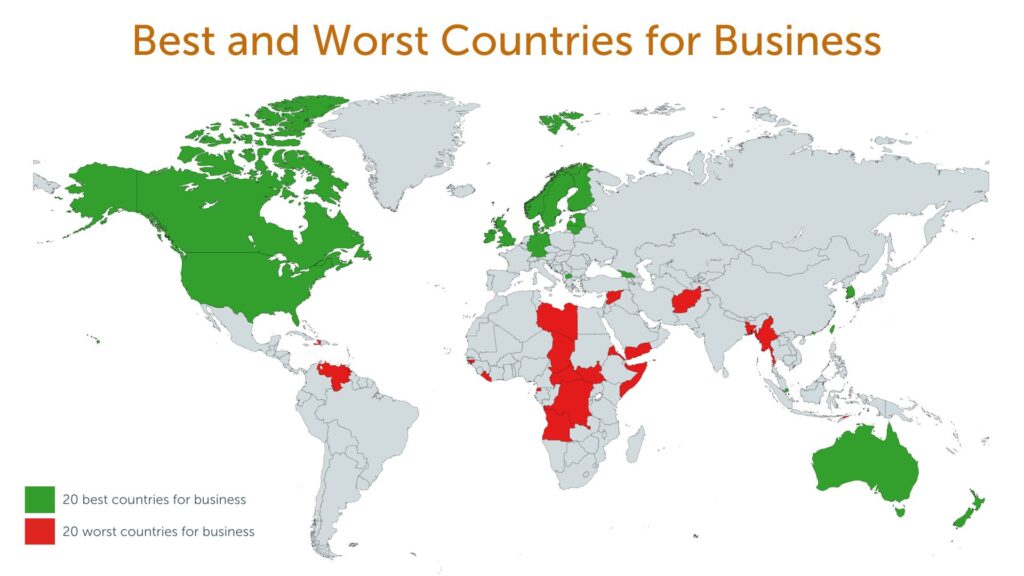Geopolitical Impacts on Businesses
As is evident to most, you don’t need to be a global company to be affected by global events. A significant risk associated with a company’s success is geopolitical uncertainty, making long-term planning problematic. Changes hit executives on all sides, coming from political, technological, economic, and environmental landscapes which can lead companies to cut back on production, investment, employee compensation, and more. For example, regional conflicts, including the war in Ukraine, caused significant problems for businesses worldwide, disrupting food supplies and impacting critical supply chains. The no-COVID policies in China resulted in the complete lockdown of essential manufacturing facilities for months at a time causing global supply shortages of critical production components (i.e., computer chips). The cost of oil increased during conflicts in the Middle East, resulting in higher transportation and utility costs domestically due to dependence on the price of this key commodity.
Political uncertainty causes unstable currencies and these currency fluctuations affect pricing of imported goods, including parts and raw materials, impacting the price of finished goods domestically. Political instability makes financial products such as currency hedges, often used to balance normal currency fluctuations, too expensive or even unavailable. This happened in Brazil when politicians failed to take necessary actions to stabilize their currency, and the value of the Real precipitously fell. Many businesses ceased operations there as a result.
Sometimes a rare and unpredictable event with severe impact, also known as a Black Swan event, poses serious challenges for global businesses. It is difficult to prepare for something unknown; however, certain things reduce the severity of its impact. First, particularly post-pandemic, businesses are trying to diversify sources in their supply chain with a focus on domestic sourcing where possible to limit international supply chain risks. Second, management teams have developed contingency plans for key business functions, such as remote work, redundant functions across multiple geographic locations, or business interruption insurance. Lastly, many businesses have improved the frequency of communications with critical vendors, key customers, bankers, and employees to build better relationships and make difficult discussions easier if the need unexpectedly arises.
While uncertainty is a large risk domestically it certainly grows when you enter a new foreign market. VION created a list to reduce uncertainty when deciding whether to expand into foreign countries, which might be helpful to others. Below, in no order of importance, is a short list of must-haves (that means all of them, not some of them) to do business in a specific location, including:
- A stable currency affording the ability to currency hedge if necessary;
- A reliable legal system so contracts can be legally enforced or disputes settled efficiently and fairly;
- Favorable tax laws to assure yourself if you put money in, can you get money out without it being taxed away; and
- A stable government characterized by free and fair elections, lack of corruption, and a defined regulatory policy.

Your company can achieve these must-haves through reliable joint venture partner(s) in the country. Look for business partners or professionals (i.e., attorneys, accountants, consultants) experienced in your business to execute the business objectives on the ground in the foreign location. They should also monitor changing political conditions in real-time for future planning.
Here at VION, we have had significant success using the list and sticking to it (read that as we have learned from our mistakes). If your company is looking to expand internationally, focusing on stability and consistency should allow you to thrive. Your business will succeed by being disciplined in following your must-have list and aligning with good partners who will be your “eyes and ears” on the ground.
Andy Warhol once said, “[B]eing good in business is the most fascinating kind of art. Making money is art and working is art and good business is the best art.” Art is creative, not something spitting out of an algorithm. Having discussions about black swan events, including geopolitical risks, a regular part of your strategic planning is not only helpful, your survival may depend upon it, making you the Monet of business.